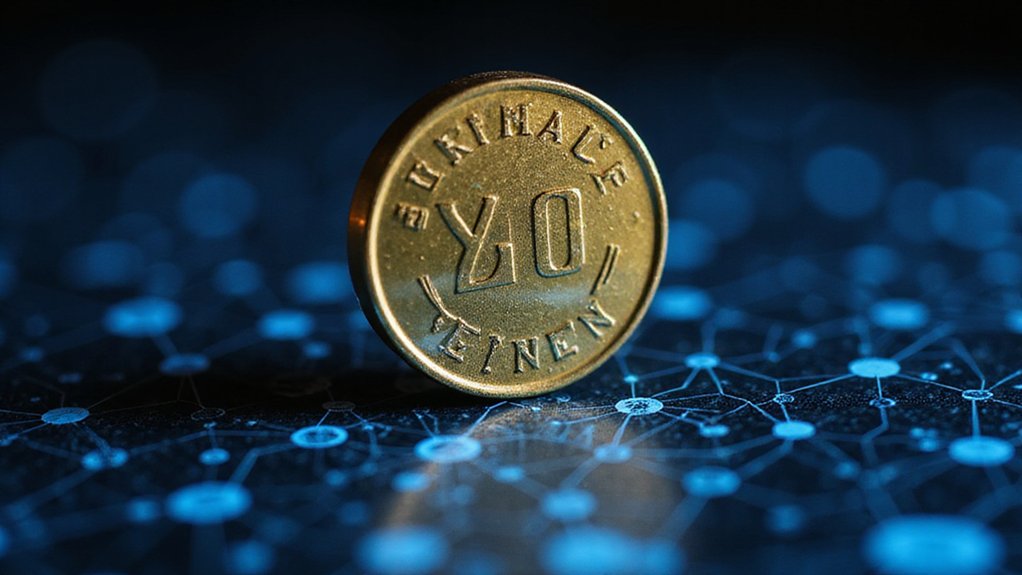While most nations grapple with the regulatory headaches of cryptocurrency taxation—crafting byzantine rules that seem designed to confuse rather than clarify—the United Arab Emirates has taken an invigoratingly straightforward approach: simply don’t tax individual crypto gains at all.
This absence of personal income and capital gains tax creates what can only be described as a financial oasis for crypto millionaires. Whether you’re flipping altcoins with day-trading fervor or holding Bitcoin with monk-like patience, the UAE’s tax authorities maintain a studied indifference to your profits. The policy extends beyond mere tolerance; it represents a deliberate strategy to attract international crypto wealth, transforming Dubai and Abu Dhabi into magnets for digital asset fortunes.
The UAE’s tax authorities maintain a studied indifference to crypto profits, creating a financial oasis for digital asset millionaires.
The corporate landscape, however, operates under different rules entirely. Crypto businesses face a modest 9% corporate tax on net profits exceeding AED 375,000—a rate that appears almost quaint compared to the 21% corporate tax levied in the United States. Certain free zone operations may still qualify for exemptions, creating additional layers of opportunity for savvy entrepreneurs willing to navigate the regulatory framework.
Value Added Tax introduces more nuanced considerations. While crypto-to-crypto exchanges and fiat conversions generally escape VAT treatment as financial services, the 5% rate applies to goods and services purchased with cryptocurrency. Some crypto services may incur a 5% VAT if fees or commissions are charged, particularly affecting services such as exchange facilitation, consulting, and asset management. The recent clarification that mining operations—despite mining rewards themselves being outside VAT scope—constitute taxable supplies effective 2025 suggests the regulatory landscape continues evolving with characteristic precision. The Federal Tax Authority has further emphasized that cryptocurrency mining activities are specifically excluded from the VAT exemption framework outlined in Cabinet Decision No. 100 of 2024.
Perhaps most compelling is the UAE’s all-encompassing regulatory framework, orchestrated by authorities including ADGM, SCA, and VARA. These bodies have constructed licensing and compliance requirements that foster security without stifling innovation—a balance that has eluded many jurisdictions wrestling with crypto regulation. The importance of proper regulatory oversight becomes increasingly apparent when examining the stablecoin market, where the GENIUS Act’s federal framework demonstrates how thoughtful regulation can prevent catastrophic failures while maintaining innovation potential.
The economic incentives for high-net-worth individuals prove particularly attractive. The combination of zero personal taxation, strategic geographic positioning, and robust regulatory clarity creates conditions that traditional financial havens struggle to match. For crypto millionaires seeking jurisdictions that understand digital wealth without attempting to tax it into submission, the UAE presents an increasingly compelling proposition—one that treats cryptocurrency profits with the respect typically reserved for more conventional forms of wealth accumulation.






